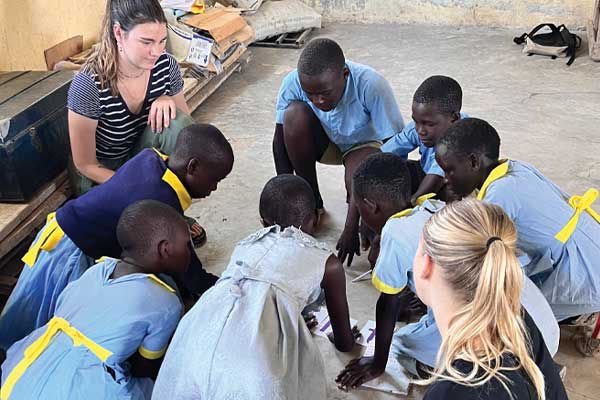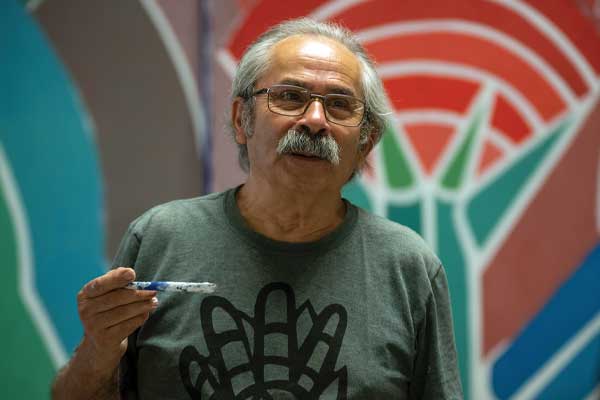
COVER STORY
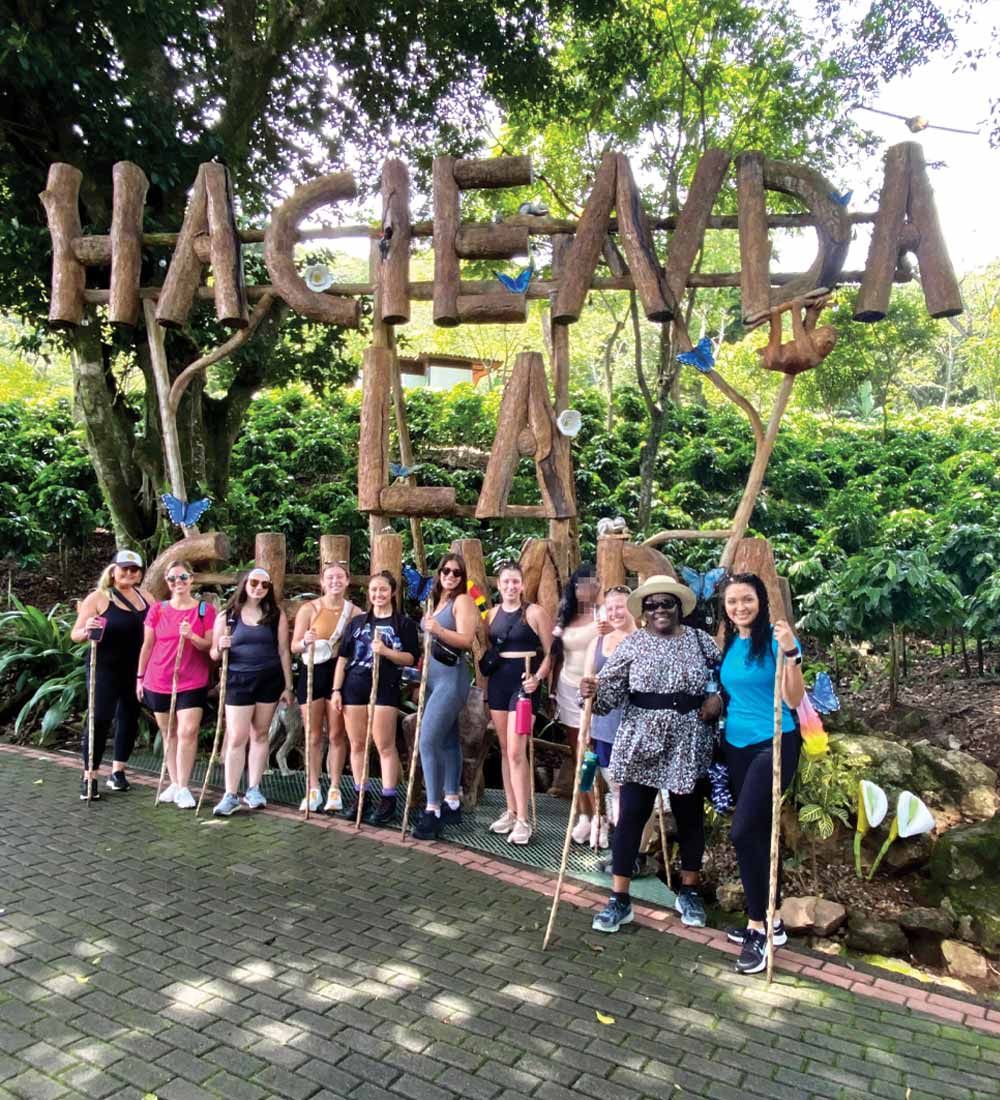

(L–R) Costa Rica; Iceland;
WORLDLY WAYS
Office of Global Engagement Brings
International Focus to Campus


(L–R) Kenya; Poland
WHEN WCU GEOLOGY PROFESSOR DARIA NIKITINA AND HER STUDENTS ARRIVED IN ICELAND TO CONDUCT FIELD STUDY IN JULY 2023, THEY ARRIVED IN TIME TO OBSERVE THE BIRTH OF A NEW VOLCANO.
Nikitina chose Iceland because it is a natural laboratory for geologic processes, such as volcanism and tectonics. The opportunity to watch a new volcano erupting was a geologist’s dream. “The site where they were expecting this eruption was very close to where we stayed,” Nikitina says.
It's the kind of experience that makes international study and travel valuable for students. “It’s the first international trip for many of our students at West Chester,” says Nikitina. “It’s a major eye opener for them. And for many of them, it’s life changing.”
Providing such opportunities is the mission of the Global Engagement Office. Angela Howard, associate provost for global engagement, and her four-person staff facilitate a broad range of international opportunities. Programs include faculty-led research and study trips, international internships and student teaching, field study, and exchange agreements with institutions abroad. Programs may be for academic credit or non-credit. Some are for an entire semester; others happen during spring break or encompass two weeks during the January term. The office also helps to arrange for sports teams to play in other countries and for performing arts students to perform internationally, plus supports international students and visiting scholars who come to study and teach at WCU.
“There was this myth that only certain majors can study abroad,” Howard says. “We try to dispel that myth by offering all of these different opportunities, especially the performance, research, student teaching, and internship opportunities.”
To streamline processes for studying abroad, the office became a passport acceptance facility approved by the U.S. Department of State – the only one at a university in Pennsylvania. Office staff can accept passport applications, administer the required oath, sign forms, collect fees, and send in the paperwork. Since opening in February 2023, more than 250 passport applications have been processed. “We wanted to remove barriers for students who want to travel,” Howard says.
Advancing globalization efforts is a priority at WCU. Former President Greg Weisenstein called for an increased focus on internationalization in 2009. That commitment was reaffirmed in 2022 when what was then the Center for International Programs became the Global Engagement Office. The new name reflects the next phase of efforts to promote campus-wide global engagement, awareness, and advocacy.
“We wanted to change our name to reflect a new focus in campus internationalization and to reflect what we want to offer our students. We want to create global citizens,” Howard explains “We want our students to be able to live and work and engage with all cultures.”
700+
Number of Study Abroad Destinations & Programs Offered
500+
Number of Students who have studied abroad post-pandemic since 2021
105
Number of International Students studying at WCU
China, India, Saudi Arabia
Countries with the most international students at WCU
38
Number of faculty-led study trips in the 23-23 academic year
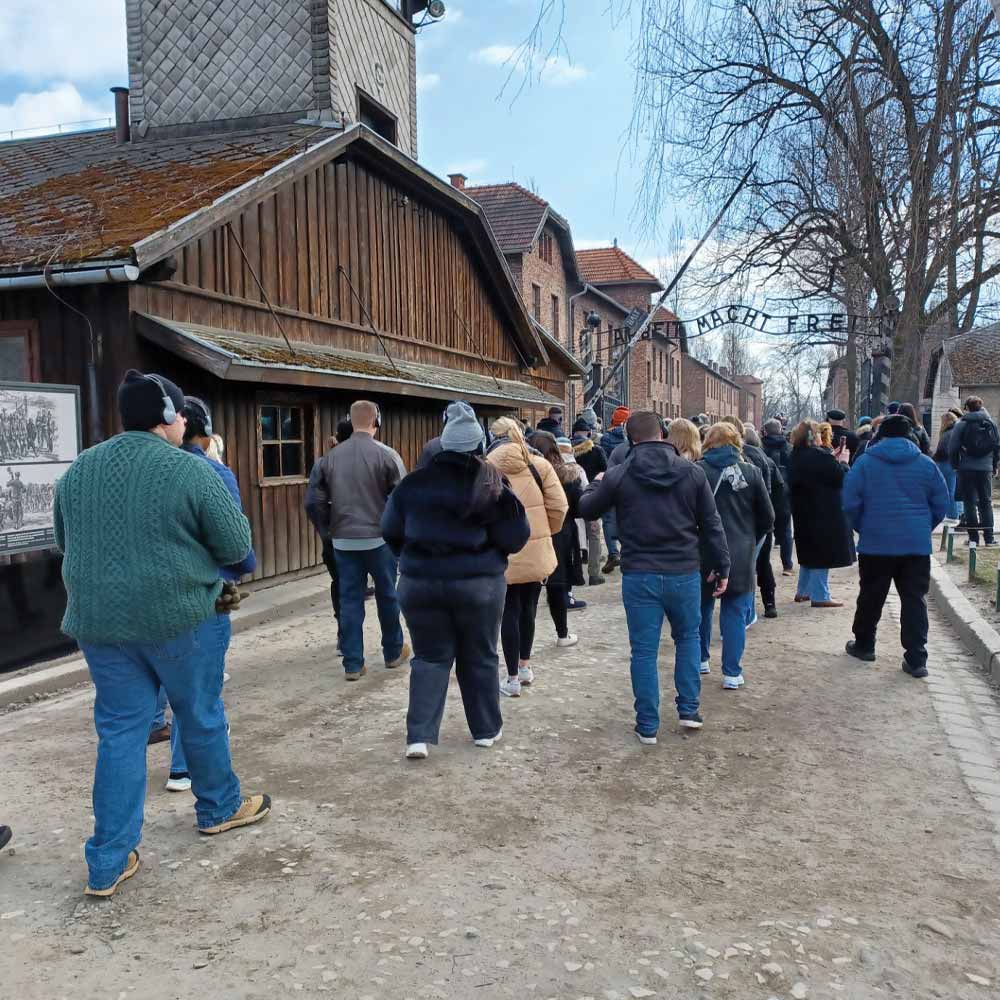
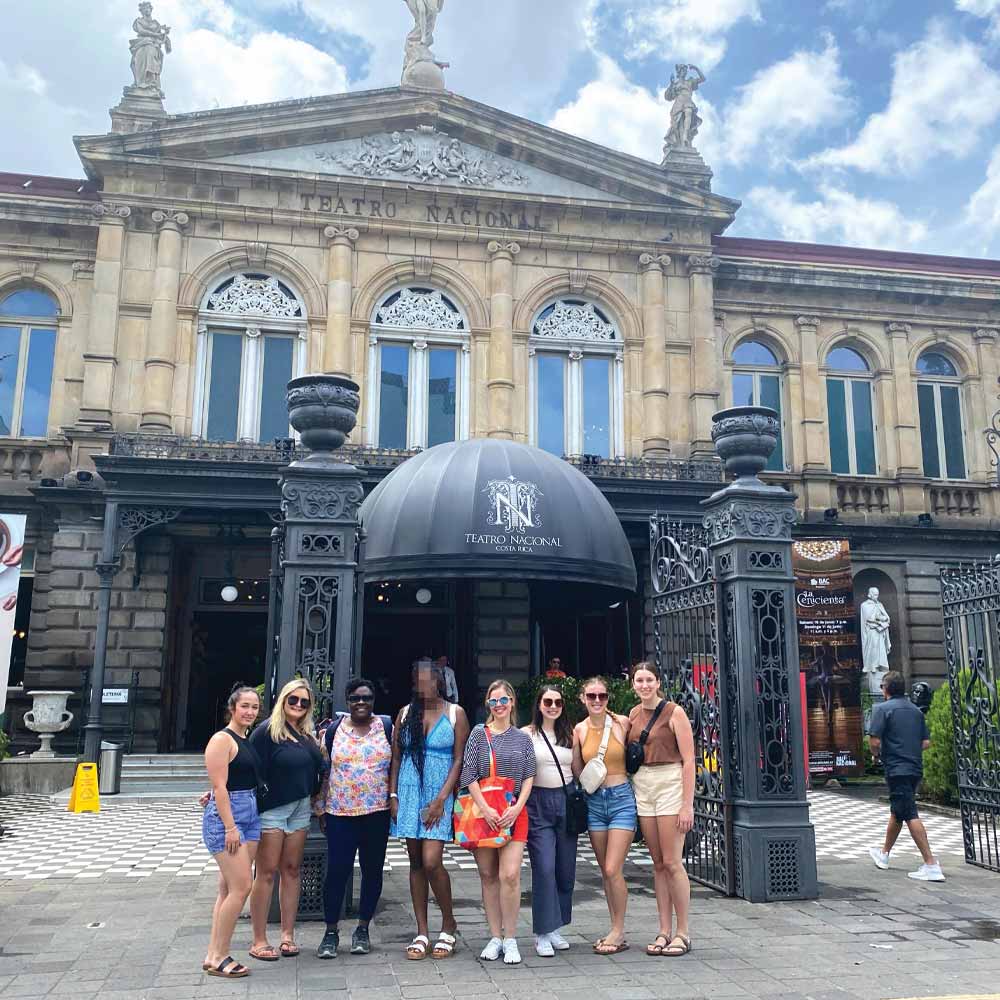
(L–R) Poland; Costa Rica
Renewing Travel Post-Pandemic
When international travel halted in 2020 because of the COVID-19 pandemic, student travel programs also paused. Howard explains that many of WCU’s international partners did not weather the shutdown, which meant forging new relationships. “Our goal was to re-start study abroad safely after two and a half years,” Howard explains. A focus on faculty-led trips was key to renewing international experiences. Efforts began with 12 faculty-led programs in 2022, followed by 22 in 2023, and 38 planned for 2024.
Faculty-led experiences can include both credit and non-credit offerings. Some are a required field experience in an academic course. One example is the program in Costa Rica run by Patricia Swasey Washington, associate professor of communication sciences and disorders, who directs the bilingual emphasis in the speech-language pathology master’s degree program. As a course requirement, students spend two weeks in clinics at partner school Universidad Santa Paula for an immersive experience working with patients who speak Spanish.
“It gives them the opportunity to see what it’s like in the real world, doing evaluations and therapy,” Swasey Washington says. Students also have the advantage of being paired with Spanish-speaking peers and participating in cultural excursions, enhancing the international experience. In addition to the clinical and cultural activities in Costa Rica, students receive classroom instruction before, during, and after the trip.
A different kind of study experience was offered by Brenda Gaydosh, professor of history, who took students on a trip to Poland for academic credit during spring break 2023. Students visited historic sites including the cities of Warsaw, Gdansk, and Krakow and visited the Auschwitz and Birkenau concentration camps. Gaydosh notes that many students can take advantage of spring break travel for academic credit because of WCU’s tuition policy, which allows them to take up to 18 credits without additional charge.
While there were academic requirements for the trip – students read a book about Polish history and wrote a paper about one of the sites they visited – the emphasis was on cultural experiences. They included interacting with Polish students in Krakow. “I had contacted a professor at Jagiellonian University ahead of time and we invited them to a dinner….,” Gaydosh says, “so two professors brought maybe six, seven students to dinner with our students.”
Not all international travel is study-related. Special Education Professor Beatrice Adera runs a service-learning trip to Kisumu, Kenya. Students spend two weeks helping to tutor children through a program for academically at-risk youth run by Sawa Africa. While the students worked with youth, Adera and Dawn Patterson, associate professor of special education, provided training to classroom teachers.
Adera, who grew up in Kisumu, says that everyone benefits from such programs. “I know that we are making a significant difference to the people of Kisumu, but also our West Chester students are growing. They are experiencing things that they would have never imagined.”
Bringing the World to Campus
The Global Engagement Office also plays a pivotal role enabling students from around the world to study at WCU. The office facilitates the paperwork required to obtain the visa allowing study in the United States. Responding to the challenges of working remotely during the pandemic, Howard and her team implemented an online system for processing the required forms. It allows international students to be admitted and receive their immigration documents in one week. The Global Engagement team did a presentation about the online system at the conference of NAFSA: The Association of International Educators. It has since been recognized as a national model for leveraging technology.
Howard has a unique understanding of what it is like to be a foreign visitor to another country. As a Fulbright Scholar in 2014, she studied the Japanese educational system. “I knew no Japanese. I had to learn how to navigate the transportation system and to order off the menu,” she recalls. It gave her a new perspective on her job.
“I put myself in the shoes of an international student at West Chester. I came back and revamped our orientation program for them,” she recalls. “I made it more in-depth and more detailed. I recruited other students to be their mentors for the first few weeks.” International students participate in pizza parties called “share and care” events to check in on their transition to the States.
The Global Engagement Office also works with academic departments to coordinate international visiting scholars who spend a semester on campus. Recent visitors have included Henrik Syse of Norway, former member and vice chair of the Norwegian Nobel Committee, who worked with the Honors College and taught a course on international ethics and world challenges related to armed conflict and artificial intelligence. Kaiguo Zhou of China worked in collaboration with Dazhi Zheng, a professor in the Department of Economics and Finance, and Hossein Vojoudi of Iran assisted Patricia Davidson, professor, and Amir Golmohammadi, associate professor, in the Department of Nutrition.
A new era began for the Global Engagement Office during International Education Week this November. The week features events such as an expo highlighting international students and the traditions of their countries. This year the highlight was a ribbon-cutting ceremony for a new Global Engagement Center in Mitchell Hall, providing a campus home for international students and programs. The new center includes a multipurpose room, a multifaith room, study space, offices for visiting scholars and the Global Ambassadors, and the campus passport office. International students decorated their new home. For Howard, it represents the culmination of a long-held goal of a place at WCU dedicated to international students and initiatives.
“It is so near and dear to my heart,” Howard says. “I’m grateful for the University community coming together to make this happen.”
D-CAP Students Visit London
on First Sensory-friendly Trip

Eight WCU students journeyed across the pond in June for a first-of-its kind sensory-friendly cultural immersion trip to London. The students, who all have autism spectrum disorder, are participants in the University’s Dub-C Autism Program (D-CAP), which partnered with the Global Engagement Office to offer the 10-day trip.
“This trip was truly one of the top five experiences of my life,” says Melanie Schwartz, an interdisciplinary studies major.
Students traveled with Cherie Fishbaugh, director of autism services, Amanda Martin, assistant director of autism services, and Beatrice Adera, professor of special education. Fishbaugh explains that care was taken developing an itinerary and adapting activities for individuals with autism, who can have significant sensitivity to sensory stimuli. Loud noises, strong smells, and unfamiliar tastes and textures are among the factors that can pose challenges.
“It involved making sure there were enough breaks. We watched their behavior to see how they were taking in sensory stimuli. When we left in the morning, we gave them reminders about what the day’s activities were going to be, and gave them estimated times for arrivals and departures,” she says. “You have to be highly vigilant throughout to help prevent them from being overwhelmed.” Other strategies included alerting students about potential loud noises or unusually large crowds. Sampling new foods can be challenging for some autistic people, and Fishbaugh applauded students’ willingness to sample fare at a vegan restaurant and a Brazilian steakhouse.
London was chosen because it is considered an autism-friendly city. The itinerary was limited to one activity in the morning and a second in the afternoon. If students needed a break, they could choose to spend time at their hotel or reading in the park, accompanied by a staff member.
The group visited the British Museum, the Natural History Museum, Tower Bridge, viewed the city from atop the London Eye, and rode the city’s legendary underground, called “the tube.” At the Maritime Museum, they straddled the prime meridian with a foot in each hemisphere. They also kayaked on the Thames and went horseback riding. The Warner Brothers Studio Tour “The Making of Harry Potter” included high tea, a favorite activity students want to duplicate stateside. They also befriended their tour guide, Ben Broughton, who visited WCU when he came to the U.S. in September.
Katie Noll, a WCU graduate student in history, picked shopping as a favorite activity. “I’m a shoe person,” she says. “I got to go to the big Doc Martin store on Oxford Street that’s like three floors. I was so excited to get a new pair of shoes.”
Schwartz and Noel shared their London experiences at the College Autism Summit 2023, which was held in Nashville in October. Travel opportunities are rare for students with autism and their presentation reflected what is possible. A D-CAP trip to Italy is planned for 2024.
“I would love to see more opportunities like this for autistic people to travel abroad for international study,” Schwartz says. “Just that little bit of support can mean so much.”
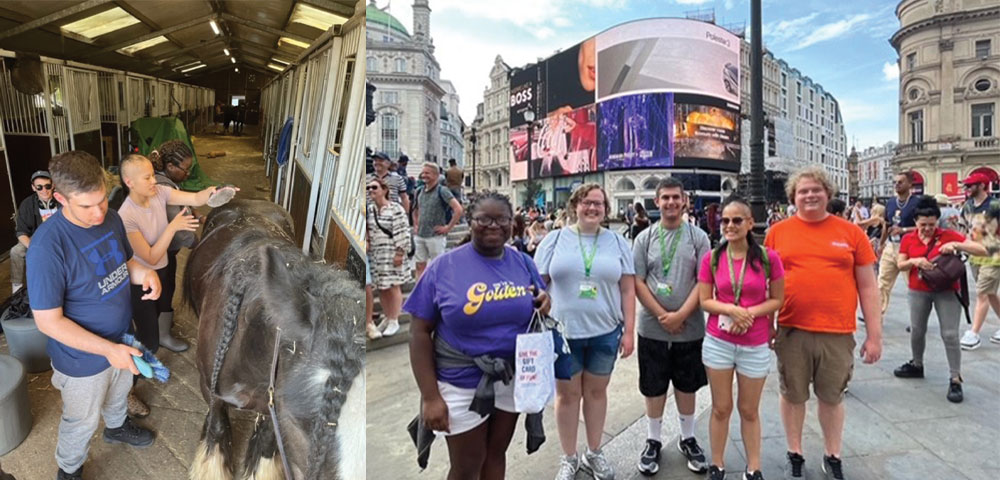
D-CAP students toured London's iconic Tower Bridge and Piccadilly Circus, enjoyed local pub fare, and visited a therapeutic riding facility in their first-ever trip abroad.
More from the Fall/Winter 2023 Issue
News
Stacking Up
WCU achieves notable rankings in U.S. News
Profiles
Donors:
Michele & Eric Goodwin
Supplying tools for success
Alumni:
Tracy ’91 & Mark Sammarone ’84
A lifestyle of community involvement
Student:
Madison Richter
Sails into Study Abroad

